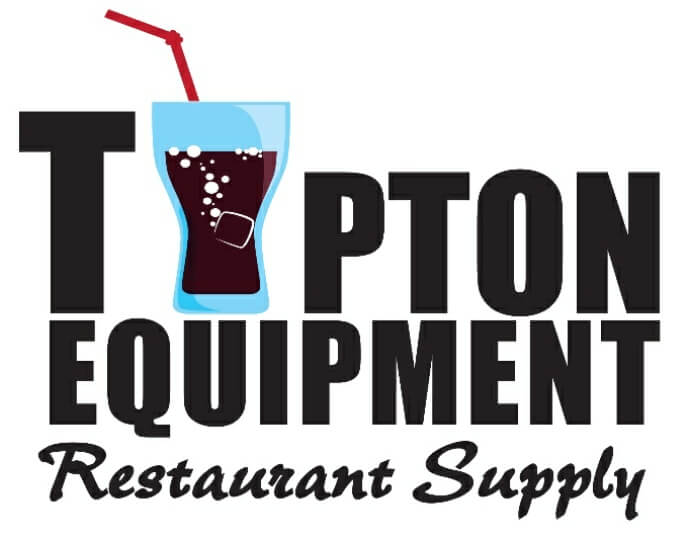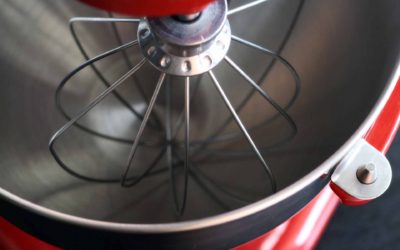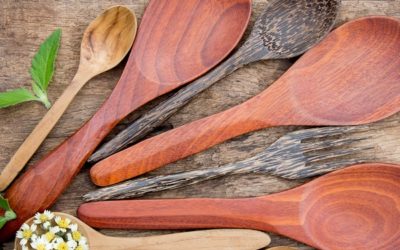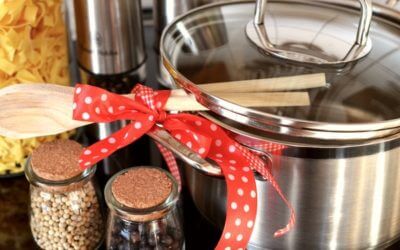Restaurant Supplies: The Growing Menu Role of Specialty Cheeses
May 1, 2019As a commercial restaurant owner or manager, you might wonder what you can do to revive your menu a bit. There are a lot of fun ways to diversify your menu, but one trend you might have noticed is the growing role of specialty cheeses.
We’ve all used common cheeses, from American to cheddar to mozzarella, in dozens of dishes on our menus. However, there are many other options that have a distinctive flavor that you can use in fun ways.
With some new ideas, you might find specialty cheese becomes a key part of your supplies.
Here are some ideas to whet your appetite!
Bleu Cheese
Bleu cheese is a popular, strongly flavored cheese option that a lot of people don’t realize is made with a type of mold. According to legend, in the 7th century, a shepherd forgot his lunch of bread and cheese in a cave. When he returned quite sometime later, it was full of Penicillium roqueforti mold.
I’m not sure what possessed this shepherd to eat the cheese at that point, but today we create cheese with this mold culture and enjoy it in dozens of ways.
In your restaurant, consider adding Gorgonzola to a risotto or pizza. Or, you might put Stilton on a salad with pears and walnuts.
A little goes a long way, making bleu cheese a great addition to your restaurant supplies for those who want to stay healthy but enjoy the excellent flavor.
Feta Cheese
With the Mediterranean Diet continuing to maintain its popularity, Feta cheese has become much more familiar to many Americans. Feta is made from goat’s milk, originally in Greece. In the EU, only cheeses manufactured in specific regions can be called “feta.”
70% of the cheese consumed in Greece is feta, and Americans love it for its salty full-flavored taste. Depending on the region, the firmness, texture, and flavor will vary.
Keep Feta cheese in your restaurant supplies for use in a variety of Mediterranean-themed dishes and salads. It also pairs well with lamb, and you can even put it on a burger or pizza!
Brie Cheese
Brie is known as “the queen of cheese,” and its soft and creamy texture stands alone. From France, this soft-ripened cheese was once used as a tribute paid to French kings.
French Brie in France is different than the American version because they sell it unstabilized. This means it can still mature and the flavor is more complex. However, it’s also prone to bacterial growth. Exported Brie is stabilized, so it never matures.
In your establishment, consider keeping Brie among your restaurant supplies as a dessert cheese. Who says dessert has to be all cakes and pies? Instead, serve baked Brie with figs, caramel apple Brie quesadillas, or honey brulee Brie.
Do You Have the Restaurant Supplies You Need?
Having unique cheeses among your ingredients is a great way to have fun with unique flavors on your menu. Of course, your restaurant needs a lot more when it comes to restaurant supplies than just cheese!
If you are looking to resupply your smallwares, replace cooking equipment, or fill other equipment needs, reach out to Tipton Equipment. We’ve been serving restaurants in Little Rock for many years, and we’d love to help you as well. Contact us today!
5 Essential Buying Tips for Your Next Food Prep Work Table
The right foodservice equipment is pivotal to the efficiency of your kitchen. One of the most important types of foodservice equipment for any kitchen is the work table. With limited room on countertops available for your food prep needs, the cooking process can drag...
Tips for Keeping Your Commercial Sink Sparkling Clean
Your commercial kitchen, just like your personal kitchen, must be kept clean at all times. With all of the cooking and food processing you do, it is inevitable that your sink gets messy. Cleaning up your commercial kitchen is incomplete without proper cleaning of your...
Food-Cutting Secrets to Beautiful Dishes
In the restaurant industry, presentation is often said to be just as important as the food itself. Using the right knowledge, skills and restaurant supplies, you can incorporate creativity into your presentation, making guests feel that they are getting something...
Top Space-Saving Tips for Commercial Kitchens
Top Space-Saving Tips for Commercial Kitchens Space is always an important consideration when setting up a kitchen, and this is even truer for commercial kitchens. With a strong focus on functionality and the kitchen supplies that meet the needs of your commercial...
5 Ways to Get the Most Out of Your Mixer
No one wants to eat off of dirty or tarnished silverware. A stand mixer is a highly useful piece of kitchen equipment to invest in. Although this type of kitchen equipment does not usually come cheap, it can last a lifetime when properly cared for. Despite all your...
Restaurant Prep Tool Selection Simplified
What’s a restaurant kitchen without high-quality prep tools that can withstand the pressure of frequent use? Whether you already have a restaurant you’re running, or you’re just planning to launch one, one vital factor that could make or mar your business is how you...
Beginner’s Guide to Choosing a Commercial Ice Cream Freezer
Ice cream is a delicious and appealing desert treat for everyone, young or old. Having made the decision to sell ice cream to your customers, whether you have a restaurant, convenience store, or specialty ice cream parlor, it is time to begin stocking up on the right...
How to Choose the Right Kitchen Scales for Your Restaurant
A food scale is an essential item in every restaurant’s store of kitchen supplies. Designed to take the guesswork out of food measurement and maintain consistent food serving sizes, food scales are indispensable kitchen supplies in the commercial kitchen. With such a...
Beer Chilling Systems: Which Type Is Right for My Restaurant?
A refrigeration unit is integral to the functioning of any restaurant. Beers are best served cold - there’s no questioning that! But which beer chilling system is the best? From reach-in coolers to glycol chillers, a beer chilling system is an important piece of...
What Equipment Will I Need to run a Food Truck?
There’s a lot of planning that goes into starting your own food truck business. Before you hit the road with your delicious food offerings, you’ll need to fill up your truck with all the right foodservice equipment. Considering the lengthy list of possible items to be...
8 Types of Food Thermometers: What You Need To Know
Food thermometers are essential restaurant supplies for your commercial kitchen. They ensure that foods prepared in your commercial kitchen are cooked to the right temperature and held at that temperature for as long as necessary to kill any harmful bacteria. This...
How to Identify the Best Food Processor for Your Needs
Highly versatile and extremely efficient, food processors are designed to take away the hard work from repetitive kitchen activities. This type of cooking equipment can quickly become an invaluable tool in your kitchen. From chopping, to shredding, grinding, mincing,...
6 Keys to Choosing the Best Chafing Dishes for Your Restaurant
The chafing dish, also known as the chafer, is an essential piece of restaurant equipment for any establishment that wants to keep food hot. This type of restaurant equipment gets its name from the French word, chauffer, which means to heat, and it’s easy to see why....
Turning up the Dial on Commercial Fryers: How to Choose One for Your Restaurant
Fried food is a well-loved favorite. This is a fact. It also makes a fryer an important piece of equipment to have in your commercial kitchen. Just consider how many appetizers and sides require frying: onion rings, French fries, and fried green tomatoes are just a...
What’s in a Cooking Pot, How to Choose the Right One?
As a restaurant owner, your cooking needs might vary. Did you know that a good quality pot can greatly improve your cooking experience, while also improving the quality of your cooking? This cooking equipment is a very important one that cannot be done away with...















